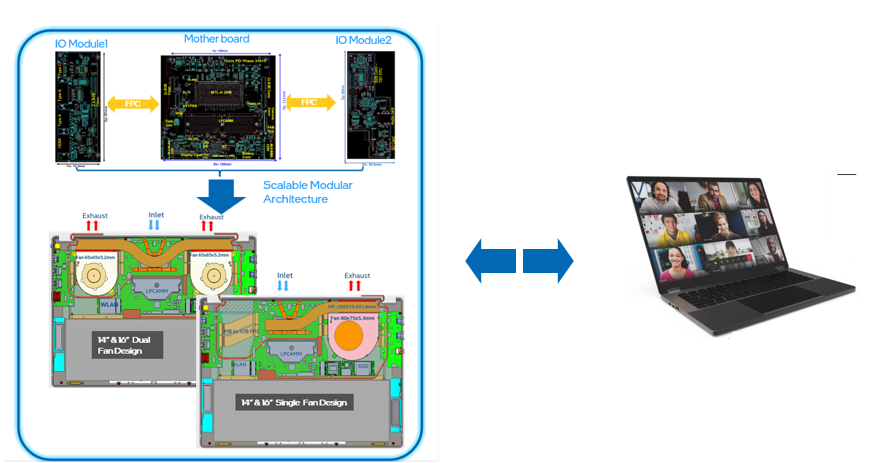
When we think about modular PCs, the concept isn’t new. Companies like Framework have led the charge in creating modular laptops, yet the idea hasn’t achieved significant traction until now. Recently, Intel has unveiled a new push for modular designs, aiming to promote upgrades, repairs, and sustainability in the tech industry.
Intel’s Vision for Modular PCs
Intel emphasizes that the absence of modularity leads to increased waste, higher costs, and challenges for users attempting to repair their devices. Every year, the world generates over 60 million tons of e-waste, and less than 25% of it is properly recycled. In response, Intel advocates for a modular approach that facilitates upgrades and repairs while also addressing environmental concerns.
“In the increasingly digital world, e-waste is a growing problem.”
- Intel
For Intel, this modular approach means creating a standardized design for laptops that enhances compatibility and longevity, potentially leading to lower manufacturing costs as well.
Impact of Framework
Framework welcomed Intel’s initiative, highlighting that by sharing reference designs, Intel is acknowledging the need for durable products that consumers can use longer. This collaborative spirit could redefine the laptop market, especially if major brands join this architectural endeavor.
Intel’s modular design encompasses a core mainboard integrated with additional IO modules. If numerous laptops utilize a similar structure, production would become more efficient, lowering costs—both for manufacturers and consumers.
However, it remains unclear how far this will extend into laptop graphics upgrades, as the mainboard may require replacement to change GPUs.
Conclusion
Intel’s commitment to a modular laptop revolution has the potential to significantly alter how PCs are designed, although the specifics on partners and timelines are yet to be clarified. This is an exciting development for anyone invested in the future of computing technology.
